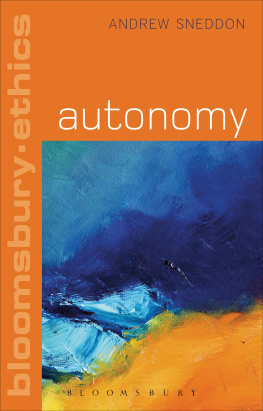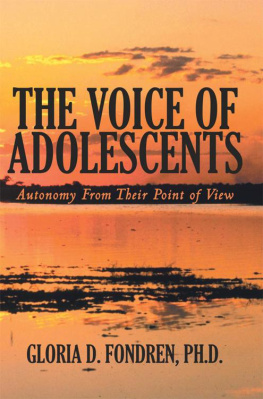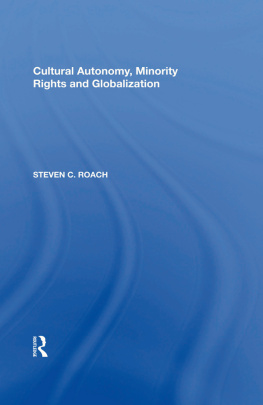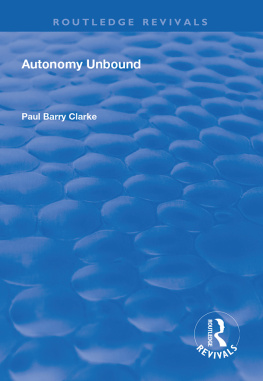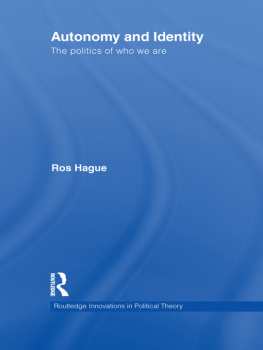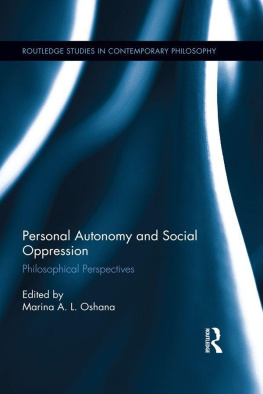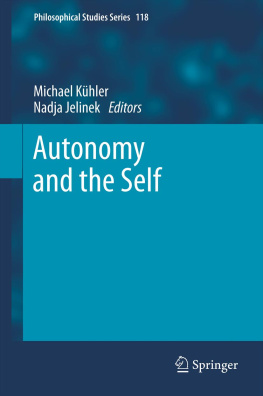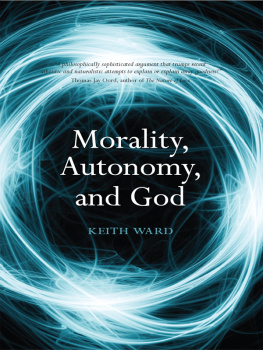Autonomy
BLOOMSBURY ETHICS SERIES
Bloomsbury Ethics is a series of books written to help students explore, engage with and master key topics in contemporary ethics and moral philosophy.
Series Editors: Thom Brooks is Reader in Law at Durham Law School. He is the founding editor of the Journal of Moral Philosophy and runs a popular Political Philosophy blog called The Brooks Blog.
Simon Kirchin is Senior Lecturer in Philosophy at the University of Kent, UK. He is President of the British Society for Ethical Theory and co-editor of Arguing About Metaethics (Routledge, 2006).
Available now:
Intuitionism , David Kaspar
Moral Realism , Kevin DeLapp
Reasons, Eric Wiland
Virtue Ethics , Nafsika Athanassoulis
Forthcoming in the series:
Trust, Ethics and Human Reason , Olli Lagerspetz
BLOOMSBURY ETHICS
Autonomy
ANDREW SNEDDON

Bloomsbury Academic
An imprint of Bloomsbury Publishing Plc
| 50 Bedford Square | 175 Fifth Avenue |
| London | New York |
| WC1B 3DP | NY 10010 |
| UK | USA |
www.bloomsbury.com
First published 2013
Andrew Sneddon, 2013
All rights reserved. No part of this publication may be reproduced or transmitted in any form or by any means, electronic or mechanical, including photocopying, recording, or any information storage or retrieval system, without prior permission in writing from the publishers.
Andrew Sneddon has asserted his right under the Copyright, Designs and Patents Act, 1988, to be identified as Author of this work.
No responsibility for loss caused to any individual or organization acting on or refraining from action as a result of the material in this publication can be accepted by Bloomsbury Academic or the author.
British Library Cataloguing-in-Publication Data
A catalogue record for this book is available from the British Library.
ePub ISBN: 978-1-4411-6841-2
Library of Congress Cataloging-in-Publication Data
Sneddon, Andrew, 1971
Autonomy / Andrew Sneddon.
pages cm. (Bloomsbury ethics)
Includes bibliographical references and index.
ISBN 978-1-4411-5231-2 ISBN 978-1-4411-6501-5 (pbk.) ISBN 978-1-4411-6841-2 (ebook (epub)) ISBN 978-1-4411-6307-3 (ebook (pdf)) 1. Autonomy (Philosophy) I. Title.
B808.67.S64 2013
128.4dc23
2012046562
Typeset by Deanta Global Publishing Services, Chennai, India
For Debbie
CONTENTS
The topic of this book is individual autonomy. The roots of the word autonomy are auto, or self, and nomos, which means law or, more colloquially, rule. To study individual autonomy is to ask questions about the nature and significance of our capacities to govern ourselves. When we think about our lives, it may seem that we understand and exercise control over certain aspects of our identities and not others. We recognize that some of our choices and actions reflect our identity more deeply than other choices and actions. Some of our desires hardly seem to come from us at all, and instead are experienced as stemming from forces external to us. What is the difference between these sources of motivation? What should we make of all this? Should we care about our own autonomy? What about other people and their control over their lives? These are the questions examined in this book. The first half presents an account of the nature of autonomy. The second half addresses why we should care about individual self-rule in both ourselves and in other people.
This book is meant as a provocative introduction to contemporary philosophical thought about autonomy. Philosophers have long been interested in the nature and significance of personal self-governance. However, at the end of the twentieth century, a particularly nuanced body of thought about autonomy was developed by a cluster of English-speaking philosophers. This book presents the themes characteristic of this body of thought, and to this degree this is an introductory book. It is provocative, I hope, because I do not merely present the various debates that have occurred in recent years. I defend a particular account of the nature of autonomy, and I argue that it matters, both in fairly general terms and with regard to quite specific moral issues. Not all readers will agree with the stands that I take. Thats good; philosophical thought about autonomy is still developing. If this book prompts readers to develop particular ideas about the nature and significance of self-governance, then it has done more than introduce them to a body of ideas. It will have included them in an on-going philosophical conversation. Maybe it will have made them more autonomous with regard to this topic than they were before. I count this as a good thing.
I have worked, on and off, on the ideas found in this book for a long time. Early versions of some of the material presented here have been published previously. I thank the publishers for permission to reproduce some of the work found in the following articles:
Sneddon, A. (2001a), Whats wrong with selling yourself into slavery? Paternalism and deep autonomy, Critic , Vol. 33, No. 98 (Aug.), 97121.
Sneddon, A. (2001b), Advertising and deep autonomy, Journal of Business Ethics , Vol. 33, #1 (Sept.), 1528.
Sneddon, A. (2006), Equality, justice, and paternalism: recentering debate about physician-assisted suicide, Journal of Applied Philosophy , Vol. 23, No. 4, 387404
A version of the third paper was presented in 2004 at Carleton University; thanks go to the audience members for their attention and helpful criticism.
More personal thanks are also owed. I taught a graduate seminar on autonomy at the University of Ottawa in 2007. I am grateful to the students in this class for their interest in and enthusiastic discussion of this territory. For a few years around the same time I ran a small reading group on autonomy. The most persistent members were Jim Greenwood, Sophie Rietti and Mark Young. Our meetings were fun blends of beer and thoughtful scrutiny of the work of some of the people discussed in this book. Thank you all for helping to sow the seeds of the present project.
I love autonomy. To some ears that might sound like I am some sort of rugged individualist, conceiving of myself and my life as thoroughly isolated from other people. Once you read this book you will see that this is not the case at all. Interest in and respect for self-rule need not involve suspicion and rejection of the influence of other people. Far from it; deep connections to other people can make us more rather than less autonomous. There is one person with whom I run my lifeDebbie, my wife. Its not just my life that would be different if we had not been a couple for the last twenty-five years. I would, quite literally, be a different person. I wrote this book, but it stems from personal, educational and vocational processes made possible and deeply shaped by Debbie. This is for her.
I am a middle-aged man. I have a career, a happy marriage, a healthy dog and good relations with my neighbours and relatives. My bills are paid on time. Crucially, I enjoy the liberty and capacity to choose what to do with much of my time and resources.
There is nothing unique in this brief description of myself. These features are shared by millions of people. But something a bit more notable emerges when we put these characteristics into the more extended context of an average life. At the beginning of my life, before my wife, neighbours and dog came along, I had much less liberty and, arguably, none of the capacities that allow me to run my life now. Perhaps the roots of the psychological abilities required for running a life are present in infancy, but there can be no denying that the processes of maturation bring with them great changes in our capacities for taking care of ourselves. When we are completely unable to address our basic needs, others bear the responsibility of ensuring that we are okay. Without this we perish. Typically, we are also denied the liberty to follow our whims in action. Thank goodness! Without such restrictions we would suffer greatly precisely because we are incapable: we lack both the skills and the knowledge to secure ourselves in dangerous circumstances. Ordinary development yields something quite remarkable by contrast. Normal people run their lives not perfectly and not without challenges, but with a degree of success far-removed from our early helplessness. Others help us with our lives, but in a much different manner from our early years. Then we were helpless dependents; now we are co-operators in the joint venture of living together as adults.
Next page
